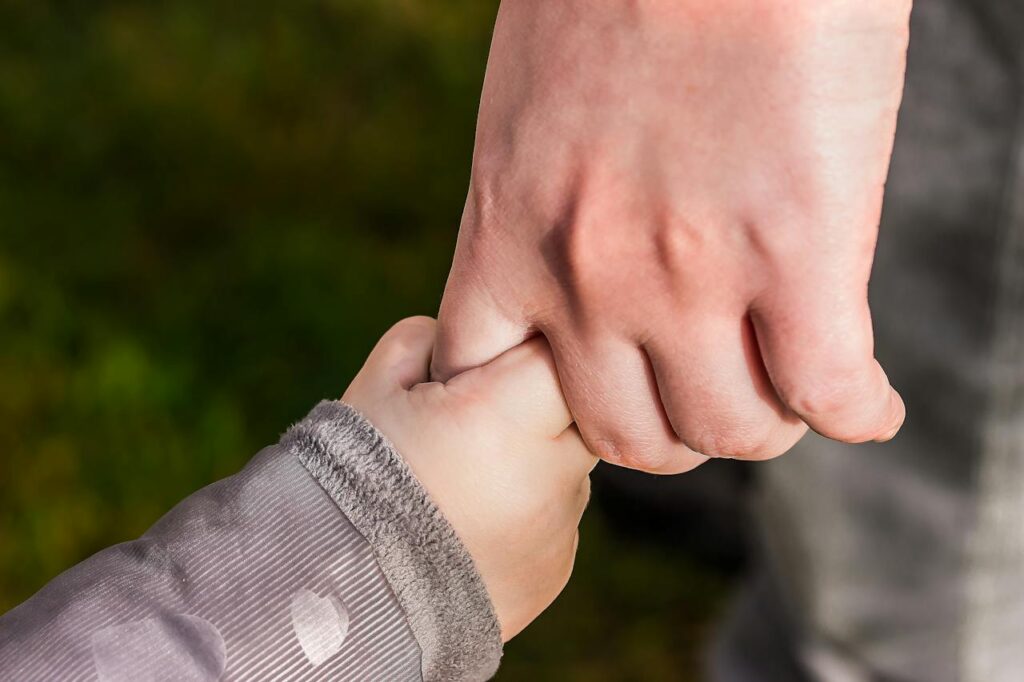Parenting is an extraordinary journey filled with joy, challenges, and endless learning. From the first moment you hold your newborn in your arms, the art of parenting unfolds before you, with each brushstroke representing the unique and beautiful experience of raising a child. In this comprehensive guide, we will explore the various aspects of mastering the art of parenting in the early years, equipping you with the confidence and wisdom to navigate this incredible journey.
Table of Contents
- Introduction
- The canvas of parenting: A masterpiece in the making.
- Preparing for Parenthood: The Foundation of the Art
- Building a strong foundation for your parenting journey.
- Creating a Supportive Environment
- Cultivating a nurturing space for your child’s growth.
- The Power of Effective Communication
- Establishing strong connections through the art of listening and speaking.
- Embracing Challenges with Resilience
- Developing resilience and adaptability as a parent.
- Nurturing Emotional Intelligence
- Fostering emotional intelligence in your child and yourself.
- Encouraging Creativity and Curiosity
- Cultivating a love for creativity and lifelong learning.
- Balancing Work and Family Life
- The delicate act of balancing professional and personal responsibilities.
- The Art of Self-Care
- Prioritizing self-care as an essential element of parenting.
- Conclusion: Mastering the Art of Parenting
- FAQ: Common Questions About the Art of Parenting
Introduction
Parenting is a unique experience that is different for every family. It involves a deep love, commitment, and continuous growth that begins from the moment you become a parent. In this guide, we will explore the many aspects of parenting during the early years and help you navigate this journey with confidence and grace.
Transition: To lay the groundwork for the art of parenting, we will begin with a discussion on preparing for parenthood and establishing a strong foundation.

Preparing for Parenthood: The Foundation of the Art
Parenting begins long before your child arrives. Preparing for parenthood involves setting the stage for a loving, supportive, and secure environment where your child can flourish. It’s about equipping yourself with knowledge and resources, as well as understanding the responsibilities and commitments of parenthood.
Transition: Once you’ve laid the foundation, it’s time to explore the importance of creating a supportive environment for your child’s growth in the next section.
Creating a Supportive Environment
A nurturing environment is essential for your child’s emotional, social, and cognitive development. Discover how to design a space that encourages exploration, learning, and creativity. This section will also touch on the significance of maintaining a safe and harmonious home.
Transition: Effective communication is a fundamental part of parenting and will be our focus in the following section.
The Power of Effective Communication
The art of parenting involves establishing strong connections through effective communication. This encompasses active listening, empathetic responses, and creating a safe space for your child to express their thoughts and feelings. Learn how these skills can strengthen your relationship with your child.
Transition: Challenges are an integral part of parenting. The next section explores how to embrace these challenges with resilience.
Embracing Challenges with Resilience
Parenting is a journey with ups and downs. Cultivating resilience and adaptability is key to navigating these challenges with confidence. Discover strategies to handle difficult situations and emerge stronger as a parent.
Transition: Emotional intelligence plays a vital role in effective parenting and will be our focus in the following section.
Nurturing Emotional Intelligence
Fostering emotional intelligence in children is a valuable gift that will benefit them throughout their lives. Learn how to promote emotional awareness and regulation in your child while also enhancing your emotional intelligence.
Transition: Encouraging creativity and curiosity is an essential part of the art of parenting, which we’ll explore in the next section.
Encouraging Creativity and Curiosity
Cultivating a love for creativity and lifelong learning is a vital aspect of the art of parenting. Discover ways to spark your child’s curiosity and nurture their creativity, fostering a passion for exploration and discovery.
Transition: Balancing the demands of work and family life is an art in itself, and this will be our focus in the following section.

Balancing Work and Family Life
Balancing work and family responsibilities is challenging, but crucial for well-being. Discover strategies for creating a harmonious home life.
Transition: Self-care is an often overlooked yet essential part of parenting. The following section will discuss the importance of self-care.
The Art of Self-Care
As a parent, taking care of yourself is not a luxury; it’s a necessity. Prioritizing self-care allows you to be the best parent you can be. Learn how to incorporate self-care practices into your daily routine.
Transition: In the conclusion, we will summarize the key elements of mastering the art of parenting.
Conclusion: Mastering the Art of Parenting
Your journey as a parent is a masterpiece in the making. Every day is a brushstroke, and with each challenge and triumph, you contribute to this work of art. Mastering the art of parenting is an ongoing process that involves nurturing your child’s growth while caring for yourself. With the right knowledge and a loving heart, you can confidently navigate the early years of parenthood.
Transition: Now, let’s address some common questions about the art of parenting in the FAQ section.
FAQ: Common Questions About the Art of Parenting
Q1: What is the most important aspect of effective parenting?
The most important aspect of effective parenting is building a loving and supportive relationship with your child. This includes open communication, active listening, and providing emotional support. It’s about being present, setting boundaries, and nurturing their growth with empathy and understanding.
Q2: How can I foster creativity and curiosity in my child?
You can foster creativity and curiosity by providing a stimulating environment that encourages exploration and learning. Offer a variety of age-appropriate toys, books, and activities. Spend quality time with your child, engage in imaginative play, and expose them to new experiences. Encourage questions and discussions, and let their natural curiosity flourish.
Q3: What are some self-care practices for parents?
Self-care for parents is essential for maintaining well-being. Some self-care practices include setting aside “me time” for relaxation or pursuing hobbies, seeking social support from friends and family, maintaining a healthy lifestyle through exercise and nutrition, and occasionally taking breaks from parenting responsibilities to recharge.
Q4: How do I maintain a work-life balance as a parent?
Maintaining a work-life balance involves setting clear boundaries between work and family time. Prioritize your tasks, delegate when possible, and communicate with your employer about your family needs. Plan and organize your schedule to include both family and personal time. It’s also important to have support systems in place, such as childcare options or family assistance.
Q5: What is the key to building resilience in children?
Building resilience in children involves teaching them problem-solving skills and helping them cope with challenges. Encourage them to face age-appropriate difficulties, offer emotional support, and model resilience through your behavior. Promote a growth mindset, where they see challenges as opportunities for learning and personal growth.
Remember that effective parenting is an ongoing journey of learning and adaptation. Every child is unique, and the art of parenting involves understanding and nurturing their individuality while also taking care of their own well-being.
In this guide, we have delved into the various aspects of parenting, providing valuable insights and effective strategies that will help you navigate the early years with confidence. As you continue to create your unique masterpiece of parenthood, always remember that it’s an ever-evolving labor of love and dedication.



